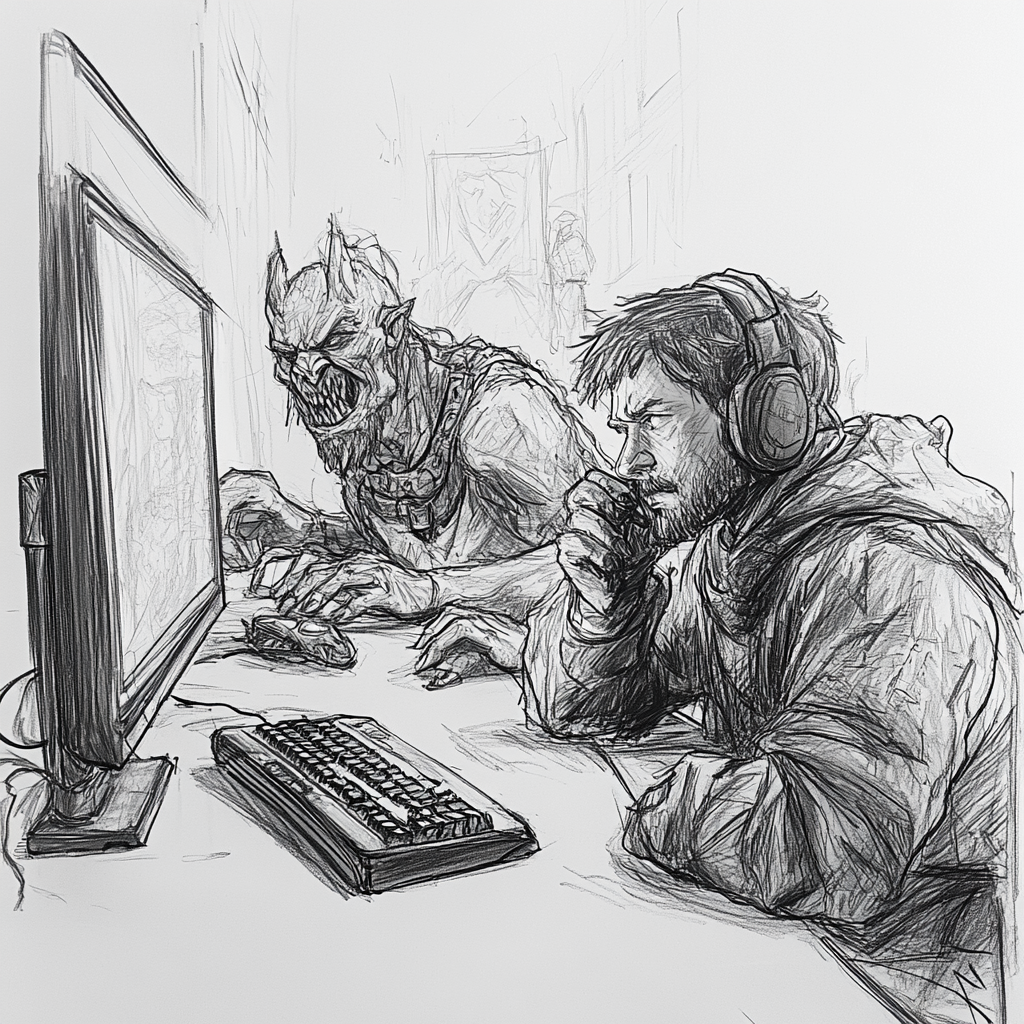The gaming industry has always thrived on innovation, but in recent years, a seismic shift has occurred: the rise of DTC (direct-to-consumer) gaming. Unlike traditional models reliant on publishers or retailers, DTC gaming empowers developers to connect directly with their audience, fostering deeper relationships, faster iteration, and unprecedented creative freedom.
This article explores how DTC gaming is reshaping the industry, why it matters for both indie developers and players, and what the future holds for this dynamic approach. So let’s get right to it!
Read also: Blockbuster games – costly experiences, growing doubts
What is DTC gaming?

DTC gaming flips the script on traditional distribution. Instead of relying on third-party platforms or publishers to reach players, developers leverage digital storefronts, social media, and community-driven marketing to sell directly to their audience.
This model isn’t just about cutting out middlemen; it’s about building a two-way dialogue with players. For example, brands like Turtle Beach and SCUF Gaming have mastered DTC strategies by offering high-performance gaming peripherals straight to consumers, coupled with immersive storytelling and real-time feedback loops.
Similarly, game studios now use platforms like Steam, itch.io, or even their own websites to launch titles, bypassing traditional gatekeepers entirely.
The benefits are clear: greater control over branding, pricing, and player data. However, the true power of DTC lies in its ability to turn players into collaborators.
By engaging communities early, through beta tests, Discord servers, or crowdfunding campaigns, developers can refine games based on direct input, ensuring the final product resonates deeply with its audience.
Read also: Indie Game Developer: How to Stand Out in a Crowded Market
The 3 pillars of successful DTC gaming strategies

1. Community as a Cornerstone
Every successful DTC gaming brand understands that the community surrounding a game is its very foundation, not just an afterthought.
Take Superplastic, a DTC brand blending luxury art toys with gaming culture. By collaborating with franchises like Fortnite and hosting limited-edition drops, they’ve cultivated a fervent fanbase that feels ownership over the brand’s identity.
DTC game developers are constantly leveraging platforms like Discord and Reddit to host Q&A sessions, share behind-the-scenes updates, and even crowdsource ideas for new features.
Our guide on how to hype up your video game emphasizes this approach, highlighting the importance of “building a tribe” through consistent engagement. For instance, live-streaming development milestones or hosting in-game events pre-launch can transform passive players into active advocates.
2. Data-Driven Iteration
DTC models thrive on agility. Without publisher mandates, developers can iterate rapidly based on player behavior.
AMD’s Ryzen™ AI processors, for example, are designed to optimize gaming performance by analyzing real-time data, a principle that mirrors how DTC studios tweak gameplay mechanics post-launch.
Tools like analytics dashboards and A/B testing allow teams to identify pain points, like a frustrating level design or an underperforming monetization strategy, and pivot quickly.
3. Authentic Storytelling
Players today crave authenticity. DTC brands like RedMagic (known for gaming smartphones) don’t just sell products; they sell narratives. By showcasing their engineering breakthroughs and involving fans in product launches, for example, they create a sense of shared purpose.
Similarly, indie games like Downtown Club (recently launched on Pico 4) gain traction by sharing developer diaries and celebrating small wins, making players feel like part of the journey.
Challenges and solutions in DTC gaming

The DTC model offers unparalleled creative freedom, but it also demands that developers navigate obstacles traditionally managed by publishers. Below, we delve into common challenges faced by DTC gaming studios – as well as into possible actionable strategies to overcome them.
Standing Out in a Saturated Market
With over 10,000 games released on Steam annually, visibility is a monumental hurdle for DTC developers. Without a publisher’s marketing muscle, even high-quality titles risk getting lost in the noise.
So instead of competing for broad audiences, DTC gaming focus on underserved genres or communities. The indie hit Valheim, for example, exploded in popularity by catering to fans of Viking-themed survival games, leveraging Twitch streamers to amplify organic word-of-mouth.
Similarly, platforms like TikTok allow developers to share bite-sized, shareable gameplay clips that highlight unique mechanics. Tools like Keymailer can connect studios with micro-influencers in specific niches, ensuring campaigns resonate authentically.
Securing Reliable Funding
Traditional publishers often front development costs, but DTC studios must fund projects independently. Crowdfunding platforms like Kickstarter are risky; only 35% of gaming projects meet their goals, and failed campaigns can damage community trust.
A possible solution is the creation of hybrid models, blending crowdfunding with pre-orders, early access, and grants. Hades by Supergiant Games utilized Early Access to generate revenue while refining gameplay based on player feedback.
Meanwhile, initiatives like the Epic MegaGrants program or Indie Fund provide non-dilutive funding for promising projects. Developers can also monetize ancillary content, such as Dead Cells’ strategy guide eBooks, to sustain long-term development.

Scaling Technical Infrastructure
DTC developers handle everything from server maintenance to regional pricing, which can become a logistical nightmare for small teams. When Among Us surged in popularity during the pandemic, server crashes and update delays frustrated players, highlighting the risks of underprepared infrastructure.
To manage that, cloud services like AWS GameTech or Microsoft Azure offer scalable server solutions with pay-as-you-go pricing, ideal for unpredictable player counts. For distribution, platforms like Xsolla handle global payments, tax compliance, and anti-fraud measures, freeing developers to focus on gameplay.
Additionally, DRM-free stores like itch.io reduce platform dependency while appealing to privacy-conscious gamers.
Managing Community Expectations
Direct player engagement is a double-edged sword. Overpromising or slow updates can erode trust, as seen with No Man’s Sky’s rocky launch, where developer Hello Games faced backlash for missing features.
So, transparent communication and modular development are pivotal. Share public roadmaps to set realistic expectations, and adopt a “live service” approach to roll out features incrementally.
Navigating Localization Complexities
Reaching global audiences requires more than translating text, it demands cultural adaptation. A mistranslated joke or culturally insensitive asset can alienate players, as Square Enix learned after backlash over Dragon Quest XI’s rushed localization.
It’s very important for DTC games to crowdsource localization and prioritize key markets. Platforms like LocalizeDirect connect studios with native-speaking translators familiar with gaming slang, while community-driven tools like Crowdin let players submit translations for in-game text.
For smaller studios, focusing on high-impact regions (e.g., Japanese RPGs localizing for Western audiences first) balances cost and reach.

Mitigating Legal and Compliance Risks
DTC developers must navigate GDPR, COPPA, and regional age ratings without legal teams. Indie studio Night School Studio (Oxenfree) faced delays when the ESRB unexpectedly flagged content, stalling their launch.
Services like ESRB Digital Ratings or PEGI offer self-certification tools for age ratings, while platforms like Steam handle regional legal checks for a fee. For data privacy, plugins like Osano simplify GDPR compliance by automating cookie consent and data requests.
What the future holds…
Emerging technologies are poised to amplify DTC’s impact. Blockchain, for instance, enables true ownership of in-game assets, while AI tools are making it easier for small studios to deliver AAA-quality visuals.
Meanwhile, platforms like TikTok and Twitch are becoming vital for viral marketing, allowing developers to bypass traditional advertising entirely.
Perhaps most exciting is the rise of player-driven economies. Games like Fortnite and Roblox already let users create and monetize content, blurring the line between developer and player. This trend aligns perfectly with DTC principles, fostering ecosystems where creativity and commerce coexist.
At its core, DTC gaming is about empowerment. It’s about developers retaining control over their vision and players feeling heard. For studios, this means faster feedback loops and higher margins. For players, it means games that reflect their desires, not just market trends.
We here at Main Leaf have witnessed this evolution firsthand. Over our 12 years in game development, we’ve seen how DTC strategies can turn passion projects into global hits. Whether you’re an indie developer refining your first prototype or a studio scaling your next title, embracing DTC principles could be the key to standing out.
And if you’re ready to transform your game development journey, we gladly offer our help. Explore more insights about video game development in our blog or discover how get in contact to learn how our team can help you craft a DTC strategy that resonates with your idea.

